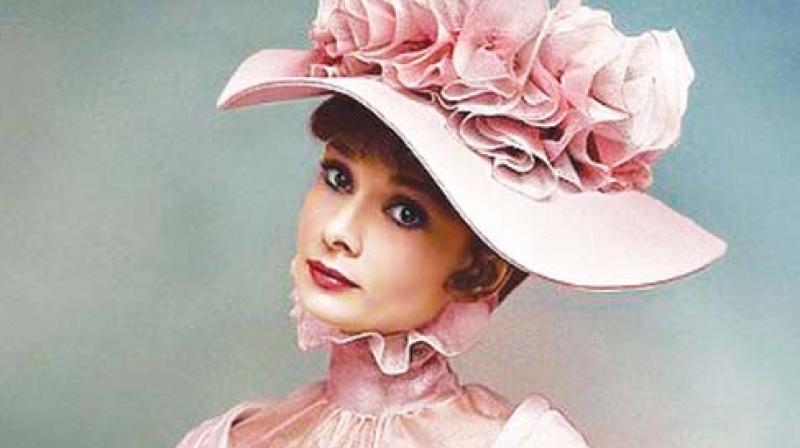From Britain to India: Mind your language

The capricious nature of the English language never fails to fascinate me. One need look no further than George Bernard Shaw’s play Pygmalion or indeed its musically maudlin adaptation My Fair Lady, to gain some understanding of how English has come to dominate the lives of more than half the world’s population.
In spreading its insidiously gentle tentacles, keeping in step with Britain’s own agenda of colonising the globe, the English language took primacy as the universal lingua franca of choice, with admirable surefootedness.
The historical development of the language has charmingly coalesced with the local idiosyncracies of speech and phonetics of each particular state or country.
We in India know this only too well. Typically, the Gujaratis, Malayalis, Bengalis, Tamilians, Punjabis and so on, will speak English in a way that almost always quaintly betrays their native tongue. If that sounds like a sweeping generalisatison, one must equally allow that there are any number of Indians who speak English as to the manner born, but they fall into the category of ‘the exclusive minority’.
In passing, perhaps we should be grateful that it was not the French who ended up occupying India, although they did harbour expansionist ambitions, and even ruled some of our territories.
The point being that it would have been hell dealing with French pronunciation and grammar, with the added complication of mixing it up with a heady assortment of Indian vernacular tongues.
Imagine a Malayali trying to say, ‘Une autre grand cognac, s’il vous plaît’, or a Bengali getting his head round ‘Comment allez vous? Je souffre d’un mal de ventre’. And the Punjabis would have had us in splits with ‘Ou est mon poulet tikka masala?’ The mind boggles. For my part I can only say, ‘Nous sommes tres heureux avec l’anglais’. In other words, ‘We are very happy with English’.
While it is true that not too many people even in England speak the Queen’s English, we have enough classics from literature available on hand to savour and learn from the likes of Shakespeare, Dickens, Austen, Milton, Bronte, Shaw and their ilk.
The purpose of this piece was to randomly reflect on how the Brits and Indians uniquely employ English in everyday parlance.
Let’s start with the English themselves. No one has perfected the art of irony more completely than the ladies and gentlemen from ‘the bejeweled and sceptered isle’.
More often than not, an Englishman will say something meaning precisely the opposite, even in simple, everyday situations.
I was watching a television programme once with an English friend, when a particularly unprepossessing lady was speaking eloquently and brilliantly on some critical issue in the House of Commons.
As I nodded appreciatively, my friend intoned, ‘She is not just a pretty face, you know’.
Again, on a typically cold, clammy, blustery and very rainy day in London, your average Englishman is apt to peer out of the window and exclaim, ‘That’s a bright and cheery start to the day’.
Of course, the Bard of Avon led the way with Mark Anthony’s speech following the slaying of Julius Cesar in a classic example. Mark Anthony backhandedly praises the assassin, ‘But Brutus is an honourable man, and so are we all, all honourable men’.
The ‘honourable man’ phrase is delivered with veiled sarcasm on a repetitive basis at the end of each stanza, giving the speech its punch and wallop.
On a more mundane note, if the electricity were to suddenly go off in the middle of a hot summer’s night, and the air conditioner were to shut down, most people are apt to wake up and wail, ‘Oh God’ or ‘Oh hell’, or something even more Biblical, whereas an Englishman will almost certainly exclaim, ‘Oh brilliant’.
Here in India, at the so called debates on prime time television, we come across the participants’ crude attempts to score cheap, brownie points off their opponents.
More often than not, the ironic subtlety is missing and the whole thing is reduced to a shambles. Typically, a participant will start his peroration in an unctuous manner, ‘I have the greatest respect for Mr. Sanghvi as a lawyer but….’ That ‘but’ is significant.
The next thing you know, Mr Sanghvi is being dismissed with the utmost disrespect as a grasping opportunist, whose utterances must be treated with the contempt they deserve!
Mind you, Mr Sanghvi is no slouch and can give as good as he gets. ‘Perhaps Mr Rao can tell us the difference between a tort and a misdemeanour before we start taking him seriously as a legal expert.
Whoever said the law is an ass, must have had Mr. Rao in mind’. Clearly hitting below the belt, but entertaining stuff. The television news anchors are no laggards either, when it comes to ‘fighting the good fight’.
The other day, a much feted (by himself) anchor threatened to ‘tear apart’ an invited guest on his show, if he ‘crossed the line’.
The poor chastised victim was left sputtering and wondering if he would be able to leave the studio with all his limbs intact!
On another channel, a lady anchor (and I use the appellation loosely), screamed at one of her panel guests, ‘How dare you speak to me like that? Mind your language, or else.’
On this occasion, the humiliated panellist yanked off his earphones and stormed off the sets, leaving behind a forlorn, empty chair. That’s telling her. The last time I was spoken to that way was in junior high school — by my teacher. I wound up in detention class and ordered to write, ‘I will not use bad language in class again’, one thousand times with my leaky fountain pen. Rumour (probably apocryphal) had it a well-known brand of ink had a vested interest in this type of punishment being meted out, and periodically ‘looked after’ our teachers to ensure higher ink consumption!
To give my teacher credit though, every time I put in a requisition for ‘one ink bottle’, she would fish out an empty bottle and hand it over to me, till I bashfully corrected the form to ‘one bottle of ink’.
The final word should go to celebrated American humourist and columnist Robert Benchley, in a fine ode to the virtues of understatement, ‘Drawing on my fine command of the English language, I said nothing’.
(The writer is a brand consultant who loves music, cricket and good humour)

